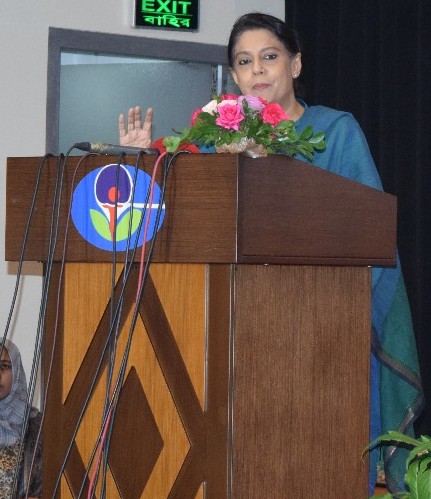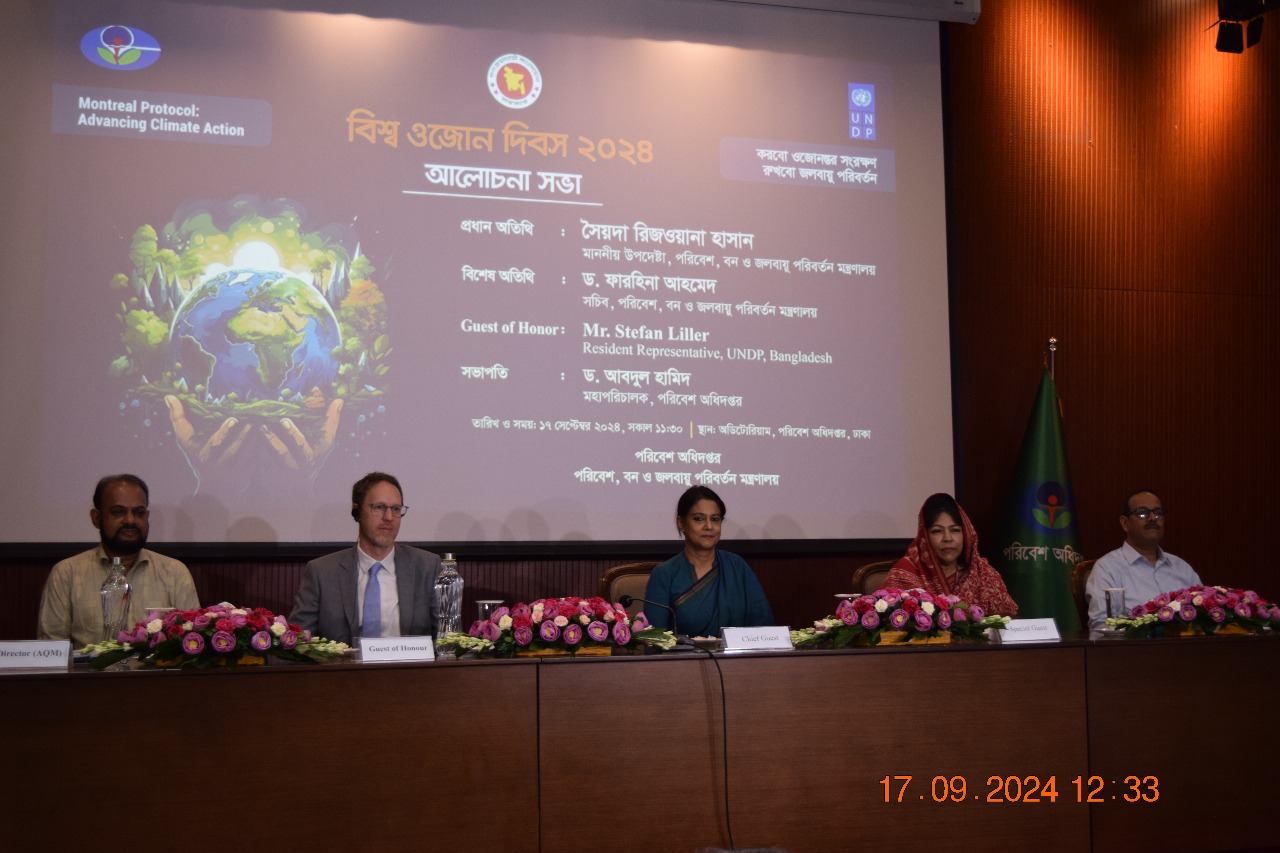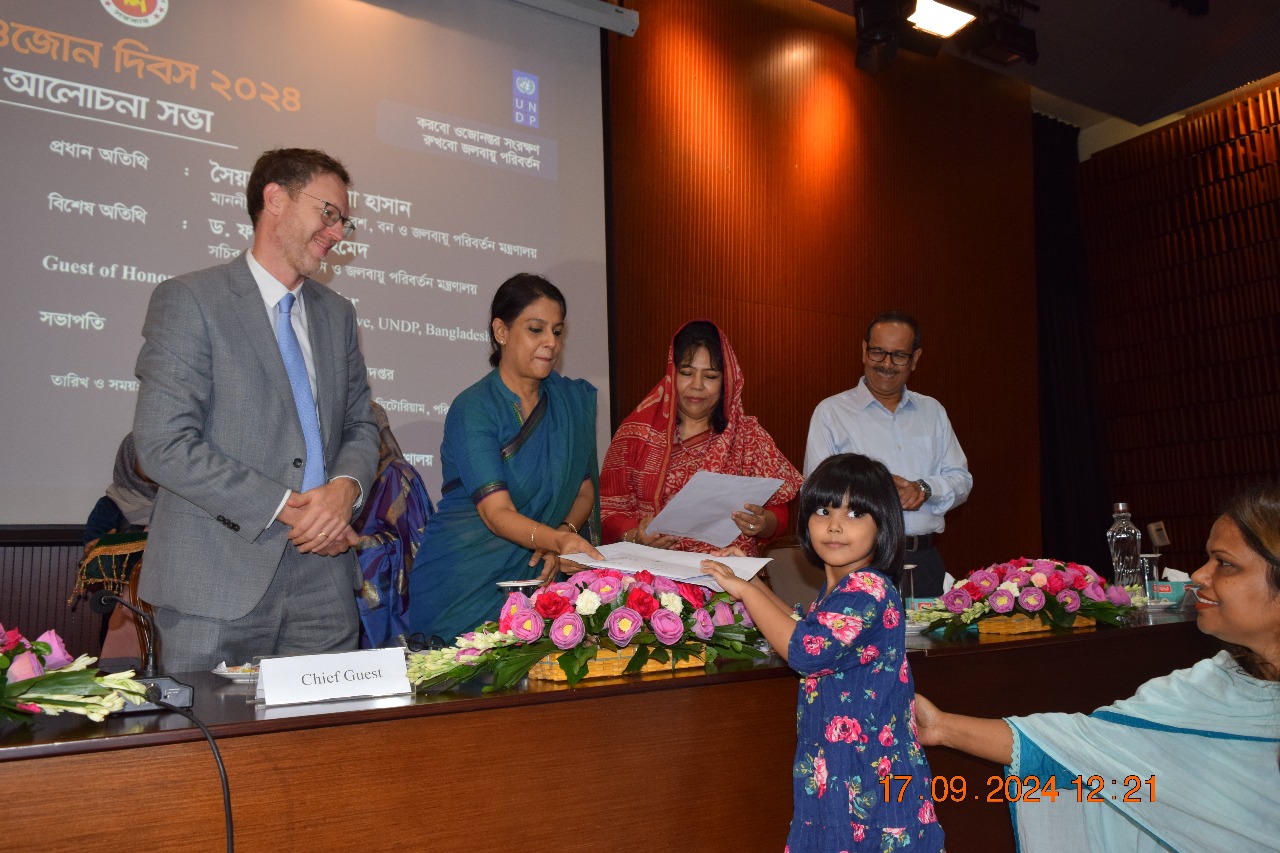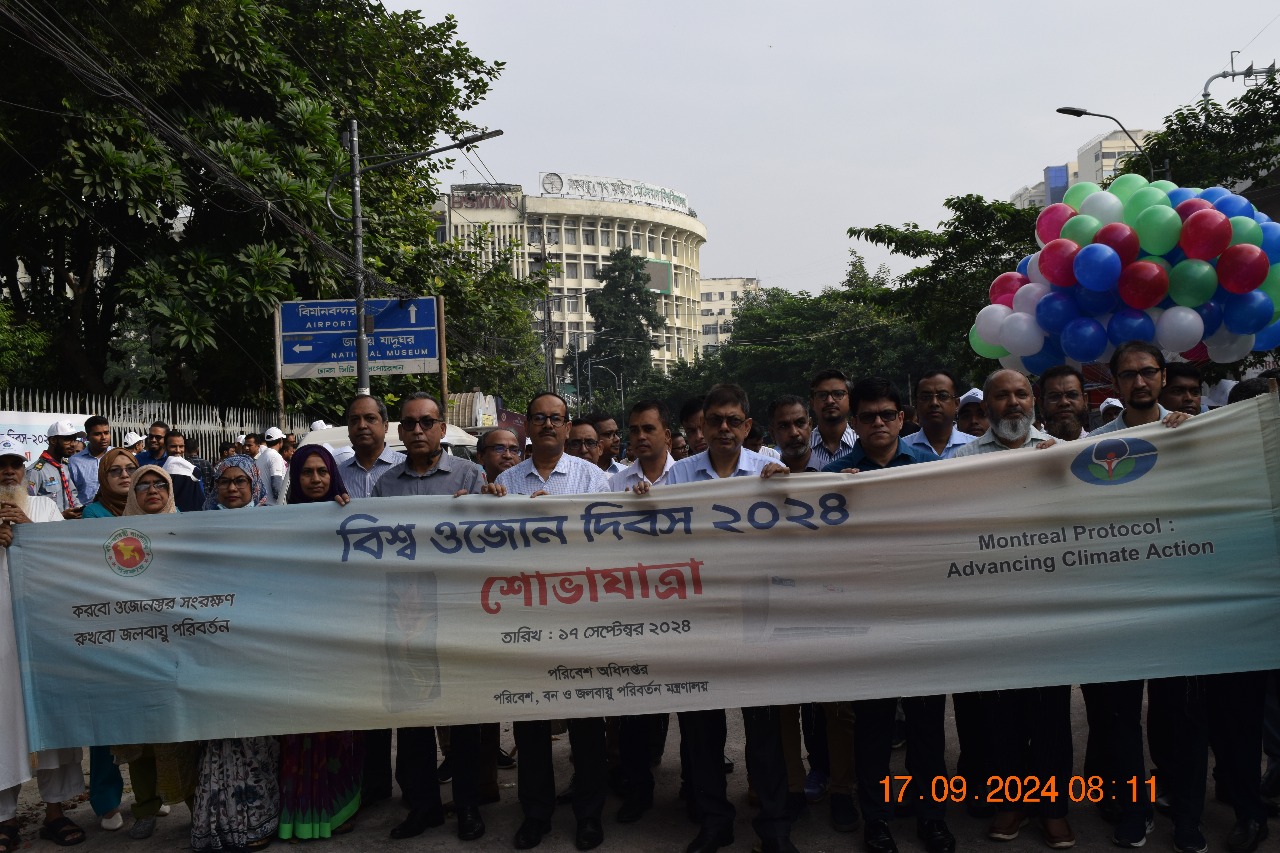About Ozone Cell
Bangladesh access to the Montreal Protocol on Substances that Deplete the Ozone Layer on 2 August 1990 and approved its London, Copenhagen, Montreal and Beijing amendments in March 1994, November 2000, July 2001 and August 2010 respectively. Bangladesh also ratified the Kigali Amendment to the Montreal Protocol on 08 June 2020 through which high global warming potential refrigerant HFCs have to be phased down. Bangladesh is operating under paragraph 1 of Article 5 of the Montreal Protocol. As a signatory to the Protocol, it is mandatory for Bangladesh to phase out import and consumption of chlorofluorocarbons (CFCs), halons and carbon tetrachloride by 2010, methyl chloroform by 2015, HCFCs by 2030 and HFC by 2040 (97.5%).The Department of Environment has been undertaking necessary activities under the overall guidance of the Ministry of Environment, Forest and Climate Change to fulfill the obligations as set out in the Montreal Protocol and its amendments. To fulfil Bangladesh's obligation under the Montreal Protocol, the Government undertook a reconnaissance survey in 1993, based on which the Country Programme was prepared in 1994. The 14th Meeting of the Executive Committee of the Multilateral Fund to the Montreal Protocol approved the Country Programme of Bangladesh in September 1994 to support for planning and coordinating all activities related to fulfilling Bangladesh's obligation under the Protocol. It is important to be noted that this support has been provided to all developing Country Parties in the name of institutional strengthening of National Ozone Unit (NOU) or Ozone Cell in biennial basis or in phases, aiming to continue the NOU or Ozone Cell functional and effective.
The National Ozone Unit (NOU) or Ozone Cell at the Department of Environment (DoE) is the national focal wing of the DoE under the Ministry of Environment, Forest and Climate Change for coordinating activities under the Montreal Protocol at national and international level. The Director General of the Department of Environment is the Chairman of the NOU or the Ozone Cell. One Director of the DoE appointed by the Director General is serving as National Ozone Officer (NOO) or the Coordinator of the NOU/Ozone Cell, and is responsible for day to day activities of the NOU/Ozone Cell. To supervise the activities and provide the guidance to the NOU/Ozone Cell, the permanent body National Technical Committee on Ozone Depleting Substances (NTCODS) will be revised under the Chairmanship of the Secretary of the Ministry of Environment, Forest and Climate Change with the representatives from relevant ministries/agencies/organizations (NTCODS) is acting as Project Steering Committee (PSC).
Project Director
 Mr. Md. Ziaul Haque
Director Department of Environment
& Project Director
HCFC Phase-out Management Plan Stage-II UNEP Component Project
Detail
Mr. Md. Ziaul Haque
Director Department of Environment
& Project Director
HCFC Phase-out Management Plan Stage-II UNEP Component Project
Detail
Md. Mahiuddin Manik, Project Director, Renewal of Institutional Strengthening for the Phase-out of ODS (Phase-10) Project
 Md. Mahiuddin Manik,
Deputy Director (Coordination) & Project Director
Renewal of Institutional Strengthening for the Phase-out of ODS ( Phase-10) Project
Detail
Md. Mahiuddin Manik,
Deputy Director (Coordination) & Project Director
Renewal of Institutional Strengthening for the Phase-out of ODS ( Phase-10) Project
Detail
Mr. Md. Iliyas Mahmud, Deputy Director and Project Director, HCFC Phase-out Management Plan (Stage-II) UNDP Component Project
 Mr. Md. Iliyas Mahmud, Deputy Director and Project Director, HCFC Phase-out Management Plan (Stage-II) UNDP Component Project
Detail
Mr. Md. Iliyas Mahmud, Deputy Director and Project Director, HCFC Phase-out Management Plan (Stage-II) UNDP Component Project
Detail





